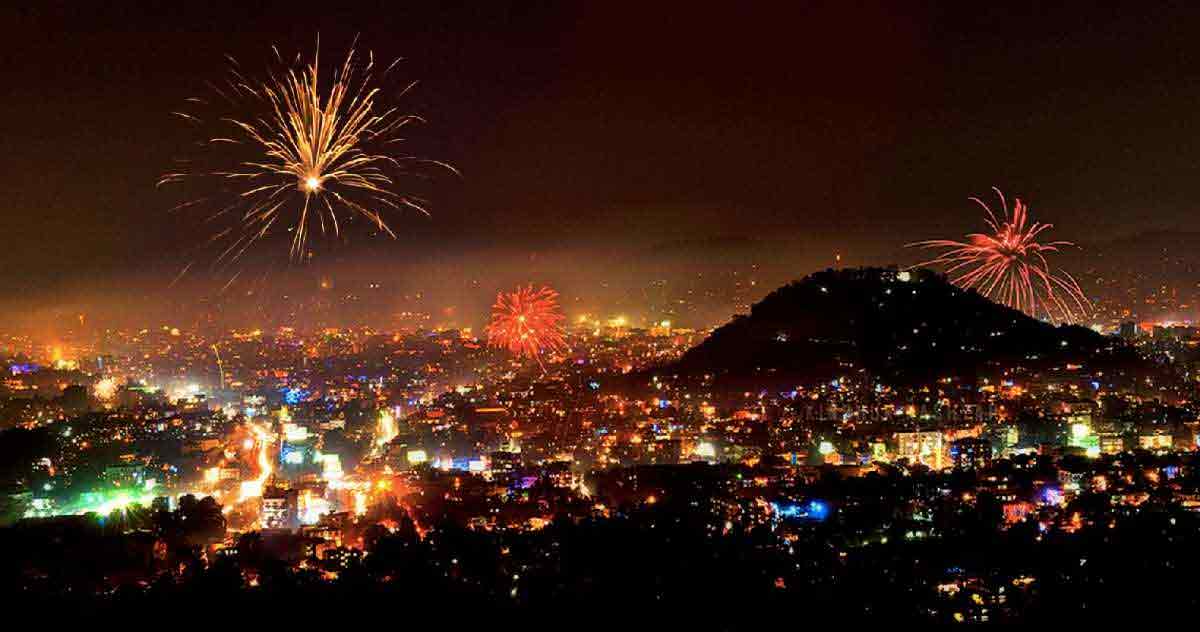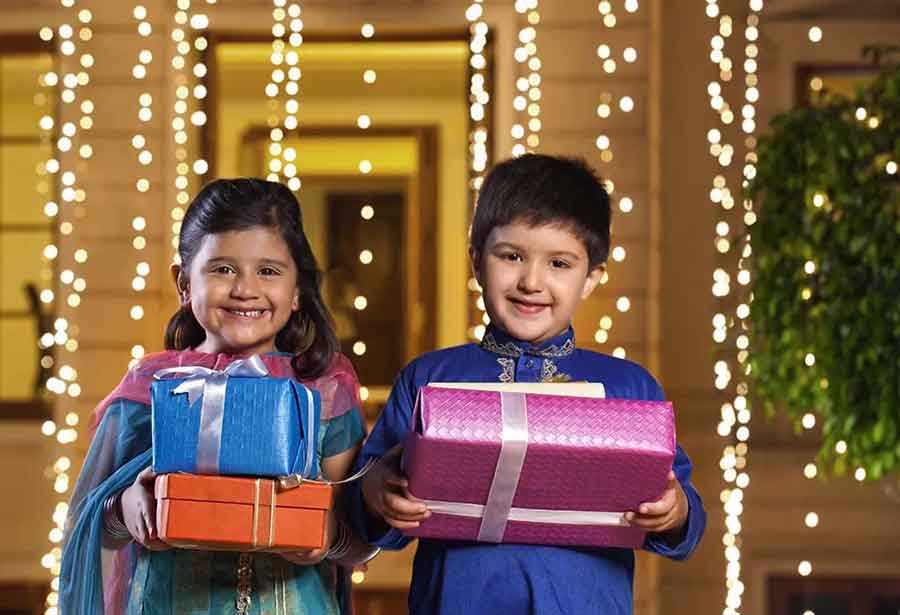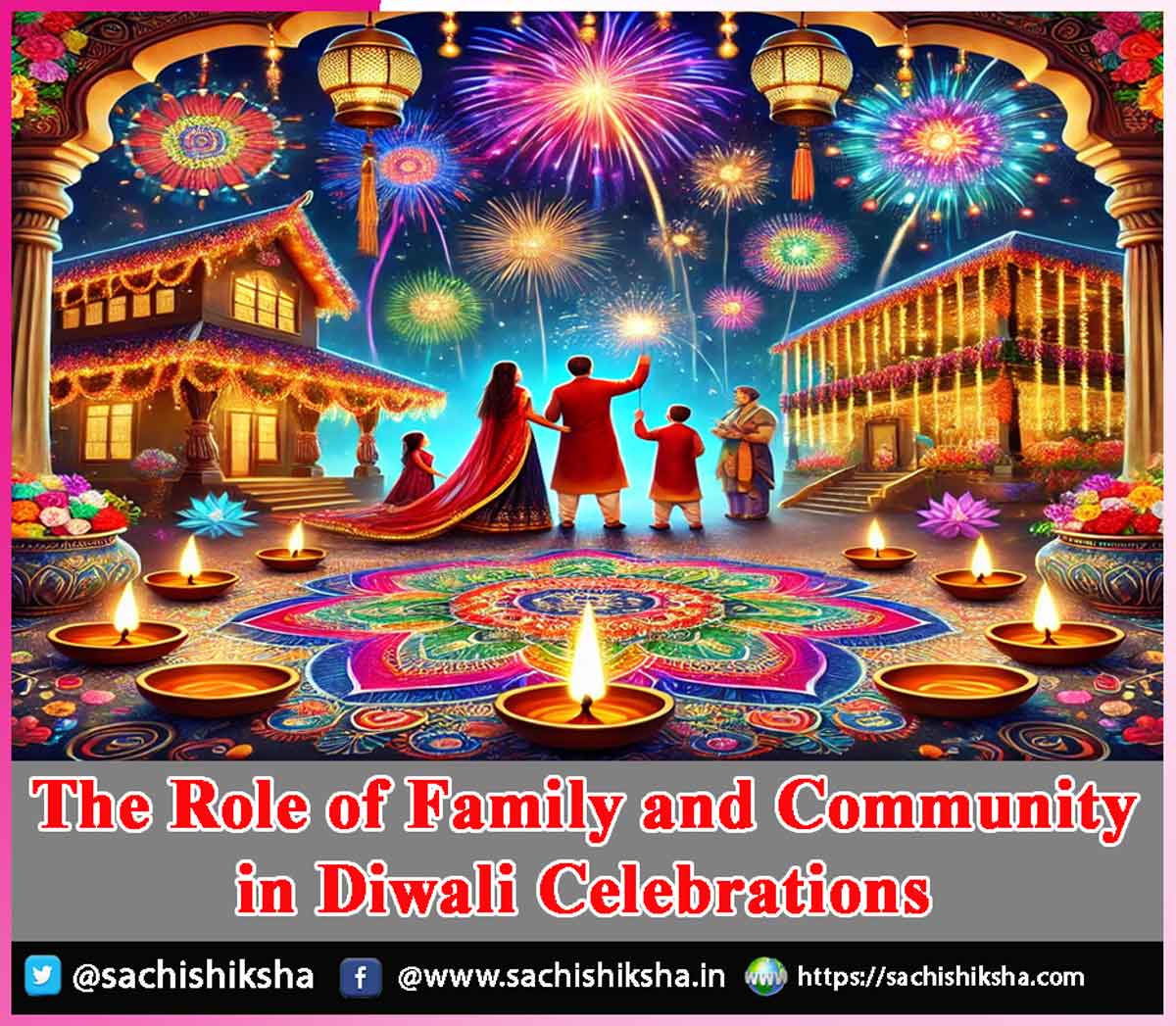The Role of Family and Community in Diwali Celebrations
Introduction: Diwali, known as the Festival of Lights, is one of the most significant festivals in India and among Hindu communities worldwide. Celebrated over five days, Diwali symbolizes the victory of light over darkness and good over evil. While the festival is rich in traditions, rituals, and mythology, its true essence lies in the collective spirit of family and community. Here we will explore how families and communities come together to celebrate Diwali, fostering bonds, cultural continuity, and shared joy.
Table of Contents
Historical and Cultural Context

In India, Diwali is not just a religious event but a cultural phenomenon that transcends boundaries. Different regions celebrate it in unique ways, incorporating local customs, foods, and rituals. However, the underlying theme remains constant: the importance of togetherness and community.
The Role of Family in Diwali Celebrations
Preparation and Decoration:
The Diwali celebrations typically begin weeks in advance, with families engaging in extensive preparations. Homes are cleaned and decorated, symbolizing the removal of negativity and welcoming positive energy. Families come together to create intricate rangoli designs at their entrances, using colored powders, flower petals, or rice. This collaborative effort fosters creativity and strengthens family bonds as members share ideas and work side by side.
Rituals and Pujas:
The heart of Diwali lies in its rituals and religious observances. Families conduct pujas (prayer rituals) to worship deities, particularly Goddess Lakshmi, for wealth and prosperity. These ceremonies are often a collective family effort, with each member playing a specific role—whether it’s preparing offerings, lighting diyas (earthen lamps), or reciting prayers. This participation nurtures a sense of unity and shared responsibility, reinforcing familial ties.
Culinary Traditions:
Food plays a crucial role in Diwali celebrations, and families come together to prepare traditional sweets and savory dishes. Recipes are often passed down through generations, making the culinary aspect of Diwali a way to preserve cultural heritage. From making intricate sweets like Gulab Jamun and Barfi to preparing savory snacks like samosas and pakoras, cooking becomes a communal activity. Family members often gather in the kitchen, sharing stories and laughter, creating an atmosphere of warmth and togetherness.
Gift-Giving and Sharing:

Evening Celebrations and Fireworks:
The climax of Diwali is the evening celebrations, where families light diyas, burst fireworks, and share in the joy of the festival. Gathering on rooftops or in open spaces, families celebrate with laughter and excitement. This communal experience fosters a sense of shared joy and togetherness, marking the festival’s true spirit.
The Role of Community in Diwali Celebrations
- Community Gatherings and Events: In many neighborhoods, Diwali celebrations extend beyond individual families to include community gatherings. Local organizations or temples often host events, such as fairs, cultural performances, and communal prayers. These gatherings provide opportunities for families to connect with others in their community, fostering relationships and a sense of belonging.
- Cultural Exchange and Inclusivity: In diverse societies, Diwali serves as a platform for cultural exchange. Non-Hindu communities often participate in Diwali festivities, engaging in activities like lighting lamps, sharing meals, or attending cultural programs. This inclusivity not only enhances communal harmony but also promotes understanding and appreciation of different cultures.
- Charity and Giving Back: Another essential aspect of Diwali celebrations is the emphasis on charity and giving back to the community. Many families engage in acts of kindness during this time, donating to local charities or distributing sweets and food to those in need. This practice of giving reinforces community bonds and highlights the festival’s core message of spreading joy and goodwill.
- Neighborhood Decor and Celebrations: In many areas, communities come together to decorate public spaces with lights, diyas, and rangoli. This collective effort transforms neighborhoods into vibrant celebrations of light and joy. Residents often organize competitions for the best decorations, fostering a sense of camaraderie and healthy competition.
- Spiritual Gatherings: In some communities, Diwali is marked by spiritual gatherings, where families and friends come together for collective prayers and meditation. These gatherings create a sense of spiritual unity and reinforce the community’s shared values and beliefs, strengthening social ties.
The Interplay between Family and Community
The relationship between family and community is dynamic during Diwali celebrations. Family units often form the foundation of community life, while community bonds enhance family relationships. For instance, families may participate in community events, bringing their children along to instill a sense of cultural identity and social responsibility. Conversely, community celebrations can provide families with a broader support network, enriching their Diwali experience.
- Creating Lasting Memories: The interplay between family and community during Diwali fosters the creation of lasting memories. Whether it’s participating in a community event, celebrating with extended family, or sharing meals with neighbors, these experiences become cherished stories that are passed down through generations. This continuity strengthens cultural identity and reinforces the significance of Diwali as a time of joy and togetherness.
- Teaching Values and Traditions: Family and community play a crucial role in imparting values and traditions to younger generations. During Diwali, elders often share stories of the festival’s significance, teach children the rituals, and involve them in preparations. This active participation not only educates children about their heritage but also instills values such as compassion, generosity, and respect for traditions.
- Building Resilience and Support: In times of challenge, the family and community support systems become even more vital. Diwali celebrations can serve as a means of bringing people together during difficult times, providing emotional and practical support. The collective spirit of joy during the festival can uplift spirits and foster resilience within families and communities.
Modern Challenges and Adaptations
As society evolves, so too do the ways in which families and communities celebrate Diwali. Urbanization, globalization, and changing lifestyles have impacted traditional practices.
Technology and Virtual Celebrations:
With the advent of technology, many families now connect through virtual platforms, especially if they are geographically distant. Online gatherings, virtual pujas, and social media sharing of Diwali moments have become common. While technology offers convenience and connectivity, it also raises questions about the authenticity of shared experiences and the potential loss of traditional practices.
Balancing Tradition and Modernity:
Modern families often grapple with balancing traditional practices with contemporary lifestyles. Busy schedules and urban living can lead to a simplified celebration of Diwali, focusing more on convenience than on collective family involvement. However, many families strive to preserve essential rituals, recognizing their value in maintaining cultural identity and fostering familial bonds.
Inclusive Celebrations:
In increasingly diverse societies, there is a growing emphasis on making Diwali celebrations inclusive. Families are encouraged to invite neighbors from different cultural backgrounds to join in the festivities. This approach not only enriches the celebration but also fosters intercultural dialogue and understanding.
Environmental Awareness:
As awareness of environmental issues grows, many families and communities are re-evaluating their Diwali practices. The use of eco-friendly materials for decorations, minimizing noise pollution from fireworks, and opting for sustainable gifting practices are becoming more prevalent. These adaptations reflect a conscious effort to celebrate the festival while being mindful of environmental impact.
Conclusion
The role of family and community in Diwali celebrations is multifaceted and deeply intertwined. From preparing for the festival to engaging in communal activities, both families and communities contribute to the rich tapestry of Diwali traditions. The collective spirit of joy, love, and togetherness that characterizes this festival is a testament to the enduring importance of familial and communal bonds. The core values of togetherness, generosity, and cultural heritage will continue to shine brightly, illuminating the path towards a more connected and harmonious society. Diwali remains not just a festival of lights but a celebration of the bonds that unite us—illuminating the essence of family and community.













































